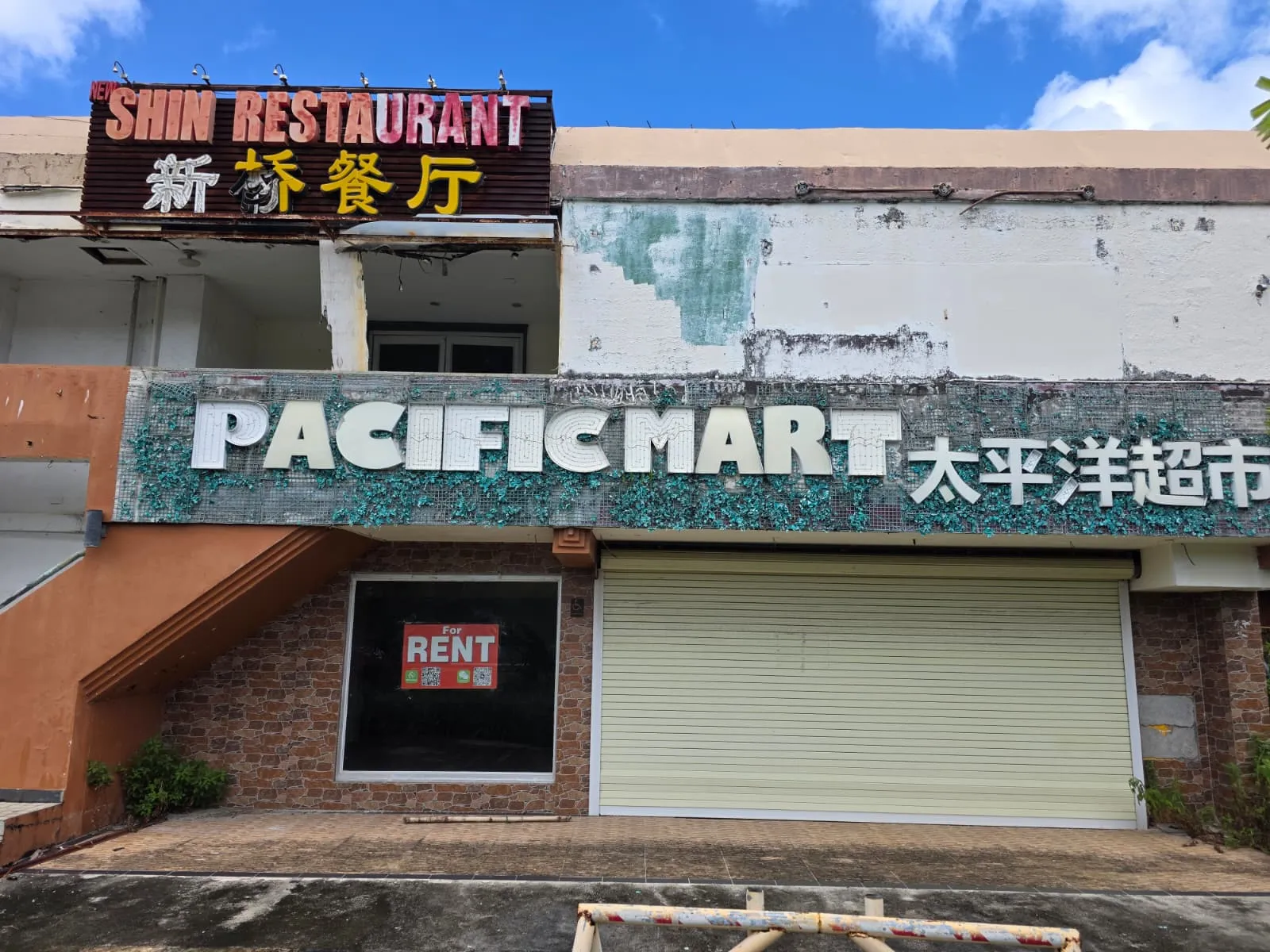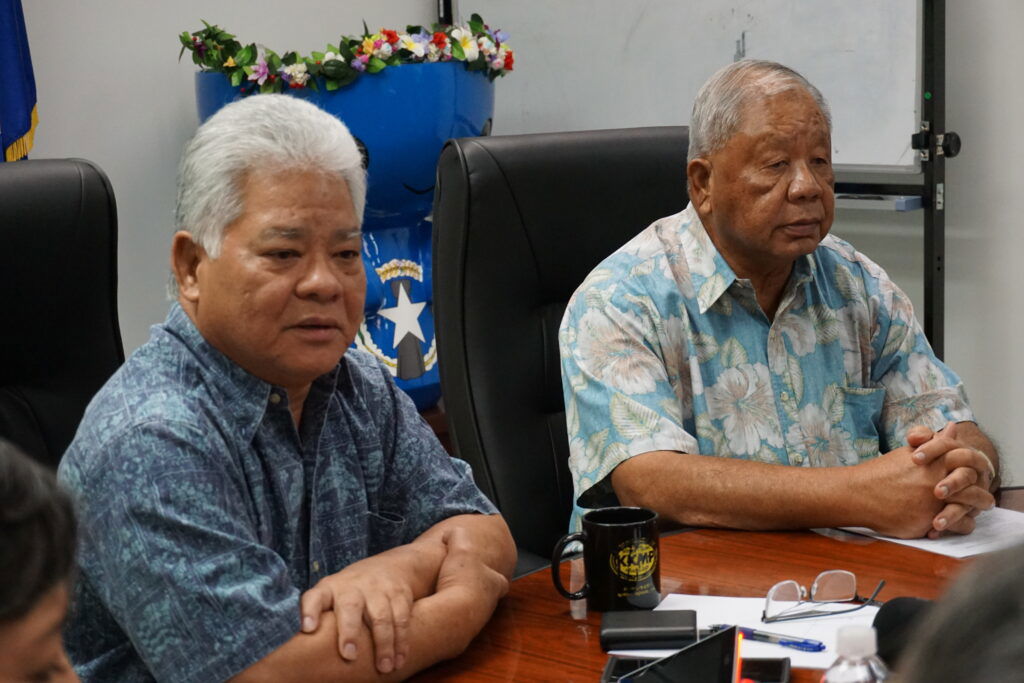THE Palacios-Apatang administration said everything is on the chopping block when the current government budget is revised in light of a funding shortfall.
“[The] number is not going to change significantly to a point where we can say that we can save jobs or programs,” said Gov. Arnold I. Palacios on Wednesday during his administration’s first press conference since assuming office on Jan. 9, 2023.
Joining Palacios were Lt. Gov. David M. Apatang, acting Special Assistant of the Office of Management and Budget Vicky Villagomez, Acting Secretary of Finance Tracy B. Norita, Senate President Edith Deleon Guerrero, House Speaker Edmund S. Villagomez and other lawmakers.
“Everything is going to be on the table,” Palacios said. “I gave instructions to the transition team to take a look at [everything] and come back with recommendations. The figures that they have found, and the misappropriation of public funds is unprecedented, and the level of abuse is unprecedented, and to continue spending at the level that we were spending in the first quarter of this fiscal year and back, it’s just not sustainable now… At this point, we are in such a dire situation that nothing should be taken off the table,” he added.
The governor said the fiscal year 2023 budget will be revised, adding that his administration will do its best to prioritize mandated payments, such as the retirees’ pension and the Public School System’s funding allotments.
According to Norita, then-Finance Secretary David DLG Atalig “turned off” the budgetary controls on the Munis software, allowing for overspending.
Norita said those controls are only supposed to be turned off for essential expenditures, such as fuel for ambulances and payroll for police officers.
Such settings are now in place under the Palacios-Apatang administration.
“Turning off the features of Munis and then spending like there’s no tomorrow, it’s absolutely [unacceptable] behavior,” Palacios said, referring to the multi-million-dollar system adopted by Finance amid the global Covid-19 pandemic.
A former director of the finance department’s Division of Revenue and Taxation, Norita said the deficit spending was mostly due to disaster and pandemic-related expenditures and government operations.
She said a two-way approach has been identified to tackle the issue: conducting an ARPA reconciliation of expenditures, and identifying disaster-related expenditures ready for reimbursement.
“It’s definitely a big challenge,” she added. “We are still in the transition period of the new administration. We’re all just trying to get ourselves set up and caught up with the daily operations that require our attention, in addition to the task at hand, so everybody is here today because that task is significant.”
Palacios and Apatang said their administration — including a fiscal response team or working group comprised of the Department of Finance, the Office of Management and Budget, the Public Assistance Office, and the Office of Homeland Security and Management — will work with the Legislature to revise the FY2023 budget so it will reflect the current resources that the CNMI has.
The governor’s fiscal response team is collecting all information and data as to what funds are available, and from there, will make a projection that is “as accurate as possible,” so that the CNMI can have a balanced budget.
Transition reports are undergoing review and will be validated by the Office of the Public Auditor which may make recommendations to the Legislature, the attorney general, and the Palacios-Apatang administration.
The administration is also looking into short- and long-term ideas to raise funds to address the deficit, such as denying non-essential government travel.
But Palacios said it is unlikely that taxes will be raised or new fees will be imposed to address the deficit.
“I believe it is a misappropriation of public funds, and I don’t want to go out and raise taxes again and impose the penalty on the businesses and the people of the Commonwealth because of the misappropriation [and] misdeeds [of] government officials,” he added.
He said they are also seeking federal assistance to address the deficit.
“I’m embarrassed to go and face federal agencies again to ask for help. It’s an embarrassment, but maybe that’s what we’re going to do,” he added.
“I sincerely hope that the numbers will come down from the monstrosity of the $86 million,” referring to the amount of ARPA funds that have been “overcommitted” by the previous administration based on a transition committee report.
“Even if that figure is not necessarily accurate, what is accurate — and I keep pointing this out — is that we have overspent what the actual figures are,” Palacios said.
“It’s going to be a challenge because the budget might shift again, but there are mechanisms in the planning and budgeting law that allow the executive branch and the legislative branch to adjust the budget without going into another total revision. But this situation is so dire that we need to revise the budget,” he reiterated.
“It’s not going to be easy. It’s going to require a lot of hard work, sacrifices, thoughts, and humility, but we will come out of this. There are no shortcuts…. This is a painstaking process, and I ask the members of our community to be patient with us [and] to be understanding of the situation.”
Today, Thursday, the governor and the lt. governor will meet with the officials of the CNMI judiciary to discuss the government’s deficit.
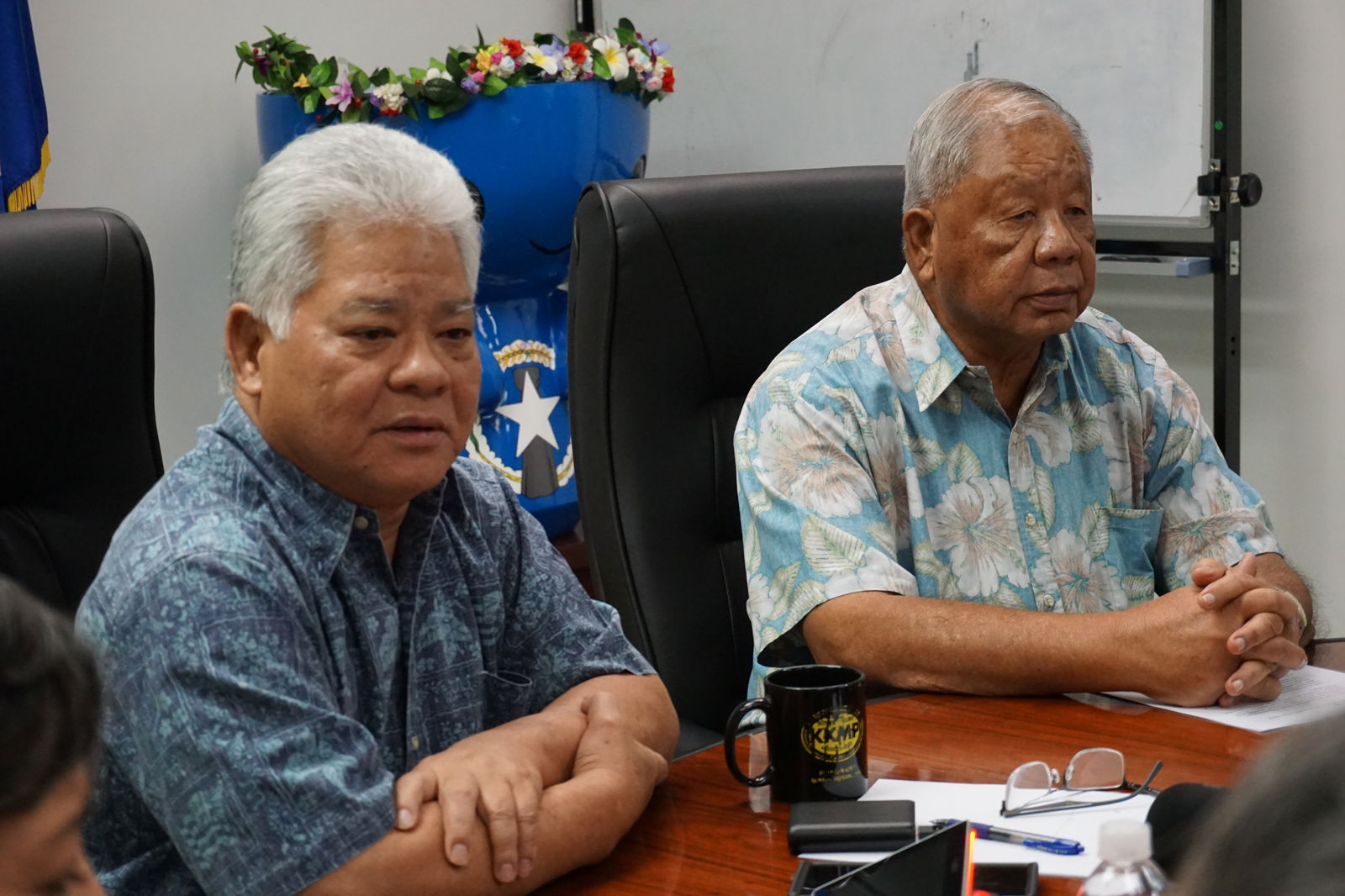
Gov. Arnold I. Palacios and Lt. Gov. David M. Apatang hold their first press conference on Wednesday afternoon in the governor’s conference room.
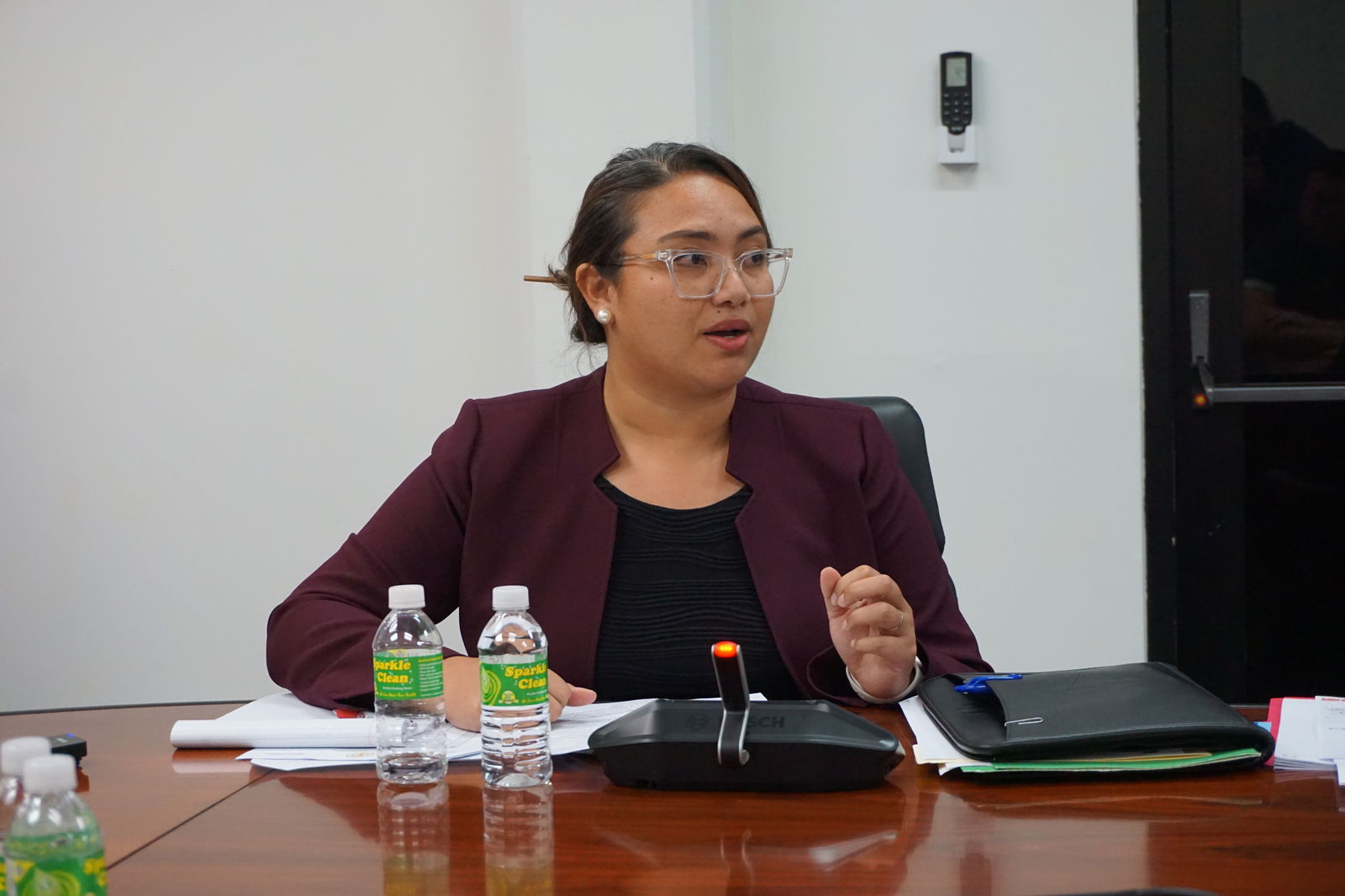
Acting Secretary of Finance Tracy B. Norita gives an overview of the state of the CNMI government’s finances.

Acting Special Assistant of Management and Budget Vicky Villagomez listens during the press conference.

Senate President Edith Deleon Guerrero listens during the press conference.
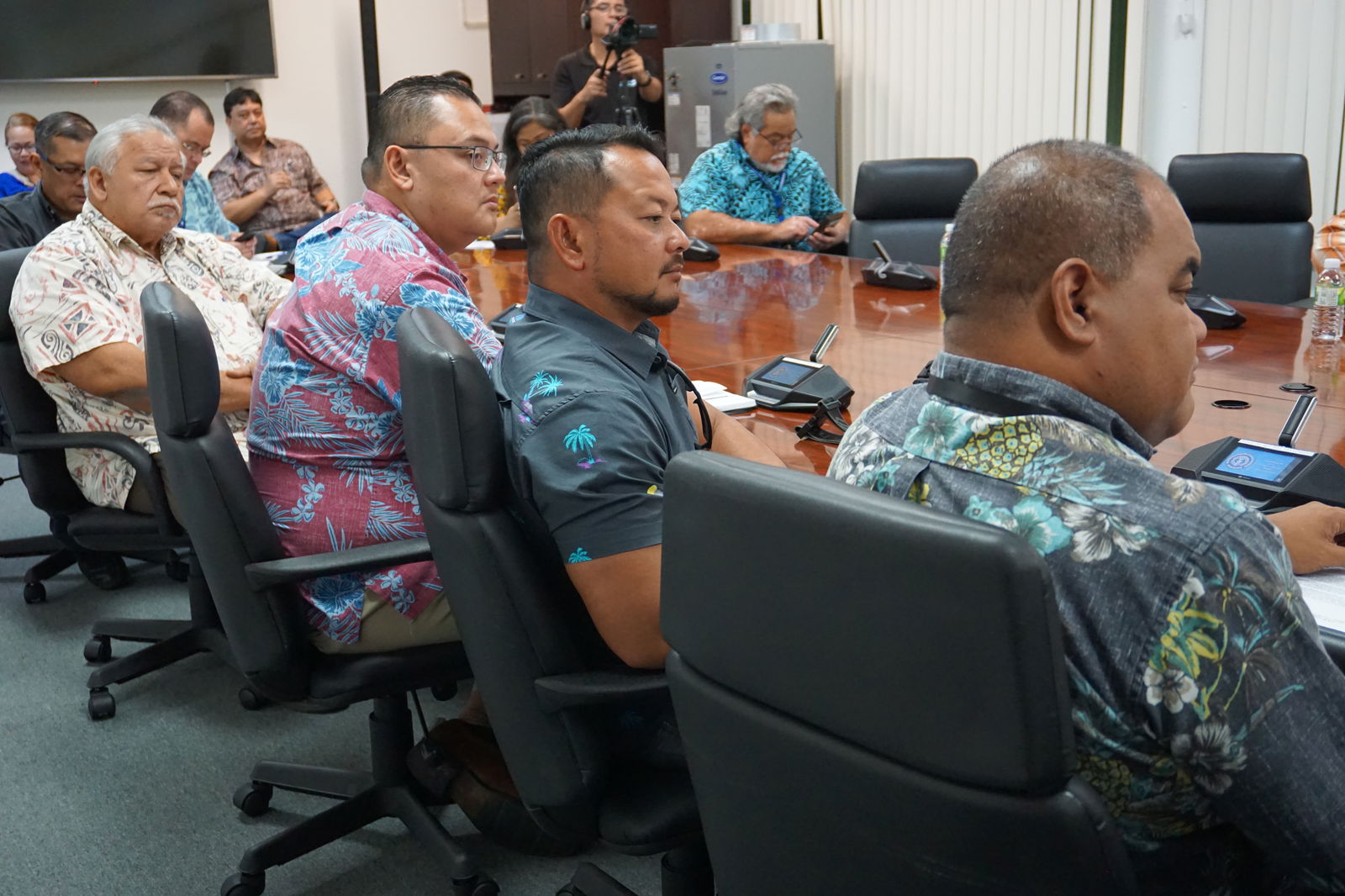
Also participating in the press conference were Rep. Roman Benavente, Sen. Donald M. Manglona, House Vice Speaker Joel Camacho, and Rep. Malcolm Omar.


